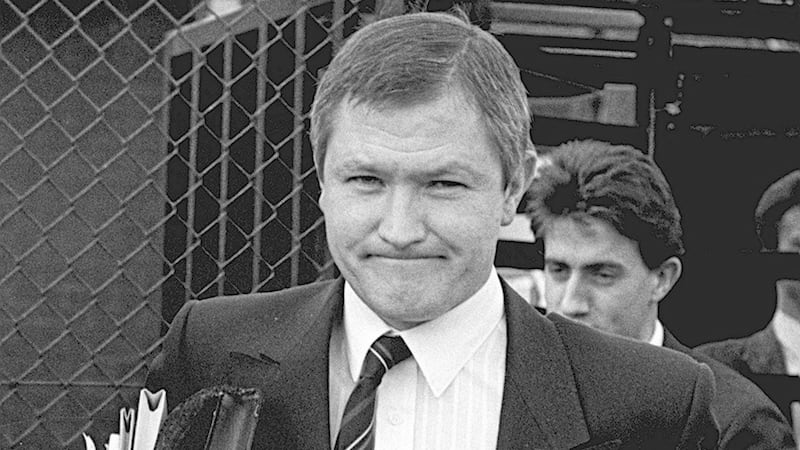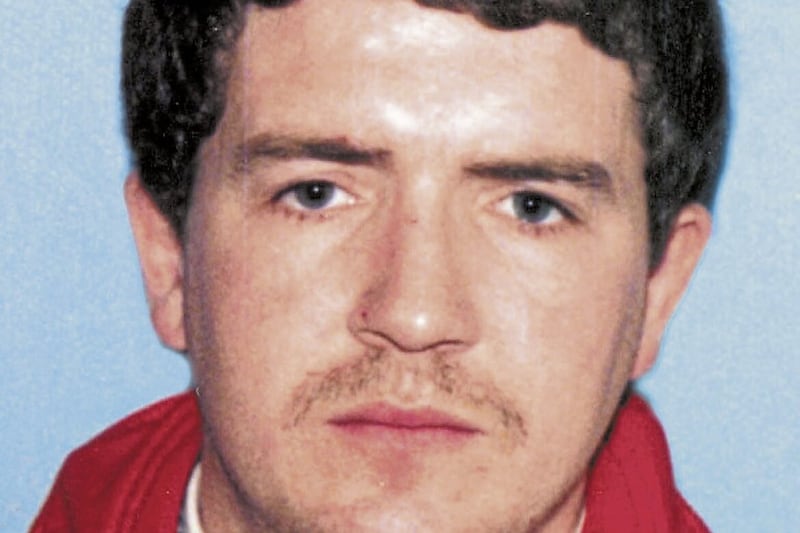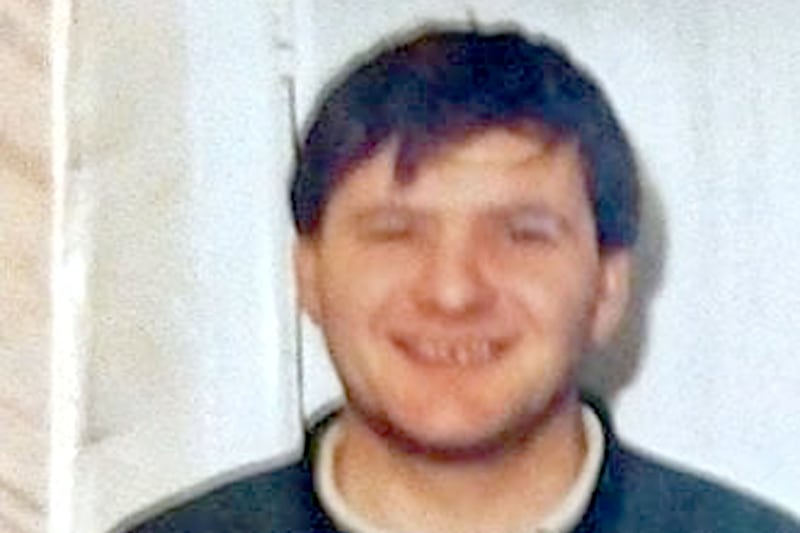CLAIMS that an 'inner circle' operated within the RUC and was involved in recent loyalist murders, including the killing of Pat Finucane, were raised by the Irish government at an Anglo-Irish conference in October 1991.
The meeting in London was attended by then Secretary of State Peter Brooke, the NIO Paymaster General Lord Belstead and, on the Irish side, by foreign affairs minister Gerry Collins, justice minister Ray Burke and education minister Mary O’Rourke.
It began with concerns that the British had not honoured a pledge to ensure the accompaniment of UDR patrols by the RUC, with Mr Collins saying this had caused him embarrassment when raised in the Dáil by Fine Gael TD Austin Currie.
He also raised recent use of lethal force by security forces, referring in particular to the killing of Kevin McGovern, a 20-year-old innocent Catholic student from Co Fermanagh, in Cookstown, Co Tyrone.
Mr McGovern had been on his way to a disco with friends when he was shot in the back while running away from RUC officers anticipating an IRA attack on September 29 1991.
A policeman was later tried for murder but acquitted, with a judge saying while he "acted honestly and mistakenly in self-defence", he had not acted reasonably.
Mr Collins said public concern was inevitably shaken by such incidents which suggested a "trigger-happy" attitude on the part of some members of the RUC.
Discussion then turned to a Channel 4 Dispatches programme which had alleged that an RUC 'inner circle' was colluding in loyalist paramilitary murders.
Mr Collins said he had emphasised at previous meetings how such allegations of collusion "raised profound fears in the nationalist community".
While the recent Stevens Inquiry had performed valuable work, the Channel 4 programme had fuelled fears that collusion still existed. In particular, it had alleged the involvement of an RUC inner force in "a number of recent murders".
Mr Collins welcomed a pledge by the Chief Constable Sir John Hermon to tackle wrongdoing within the security forces but added that "it must be accepted" there was "a real problem of confidence".
He recalled at a previous conference raising allegations of collusion which had surfaced following the UVF murder of four Catholic men at Cappagh, Co Tyrone in March. Three of the victims were IRA members.
The suspicion of collusion, Mr Collins said, had been growing in recent weeks because of the current loyalist campaign of violence and "the accuracy with which loyalist paramilitaries had been able to pinpoint some of their targets".
He said loyalists had struck at individuals who, to all appearances, were victims of random selection but who had, in fact, "a covert republican involvement".
This fuelled suspicions that the assassins "may have had assistance from the security forces".
Mr Collins added that the trial of former UDA agent Brian Nelson would significantly renew fears about collusion.
The chief constable replied that "there were sometimes dishonest policemen" but he was critical of the Dispatches programme, saying that his "initial findings" ruled out the existence of an "inner circle" in the RUC.
As regards the murder of solicitor Pat Finucane in 1989, the Chief Constable said that he was "a well-known and obvious target for loyalist paramilitaries".
In regard to the ‘Cappagh incident’, he said "for the terrorists to make their escape without having to worry about security force patrols" would have required "collusion on a massive scale" up to the rank of RUC Superintendent.
He gave the conference his personal assurance that if any officer was suspected of collusion, he would be arrested.
Mr Collins said "he accepted everything the Chief Constable had said in the knowledge that he meant every word".








